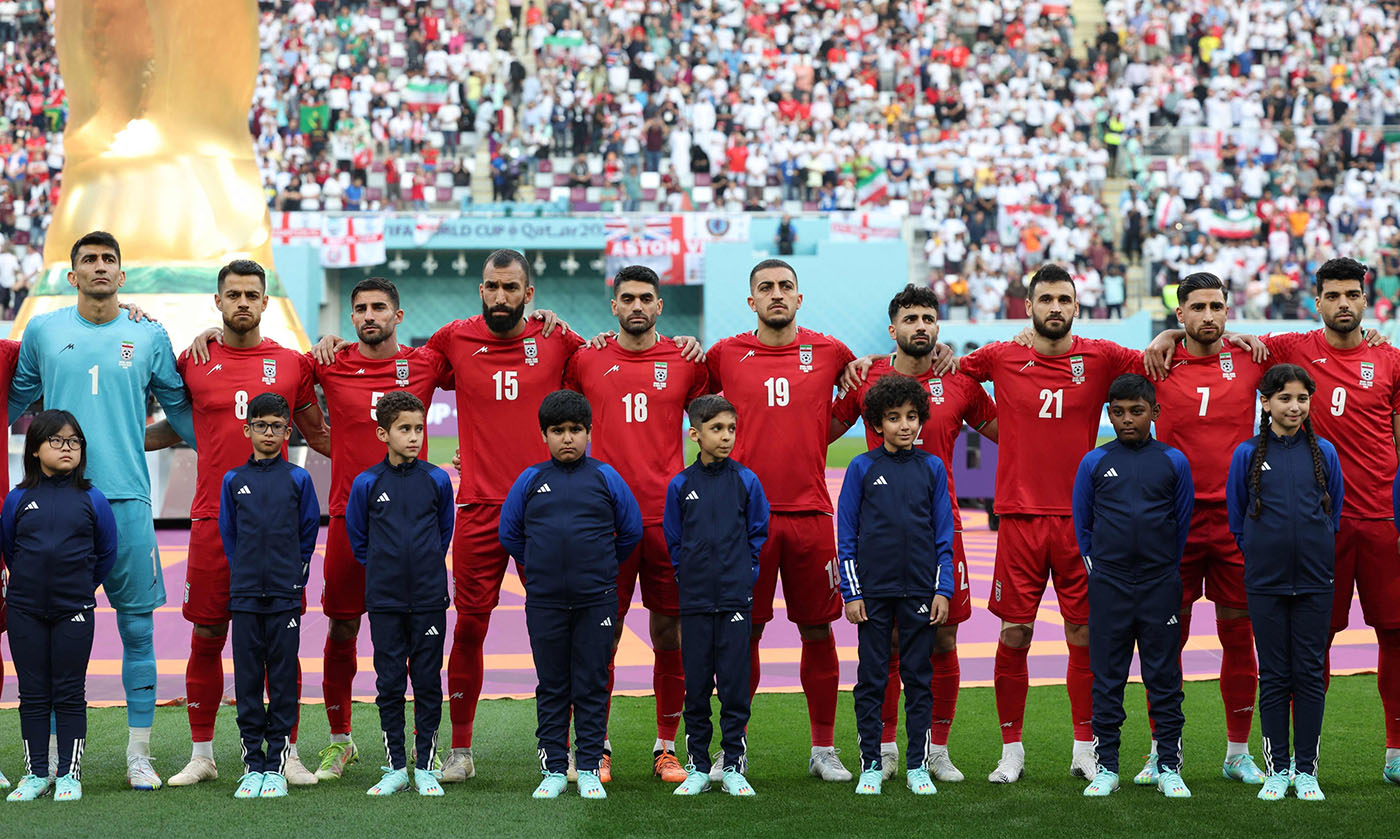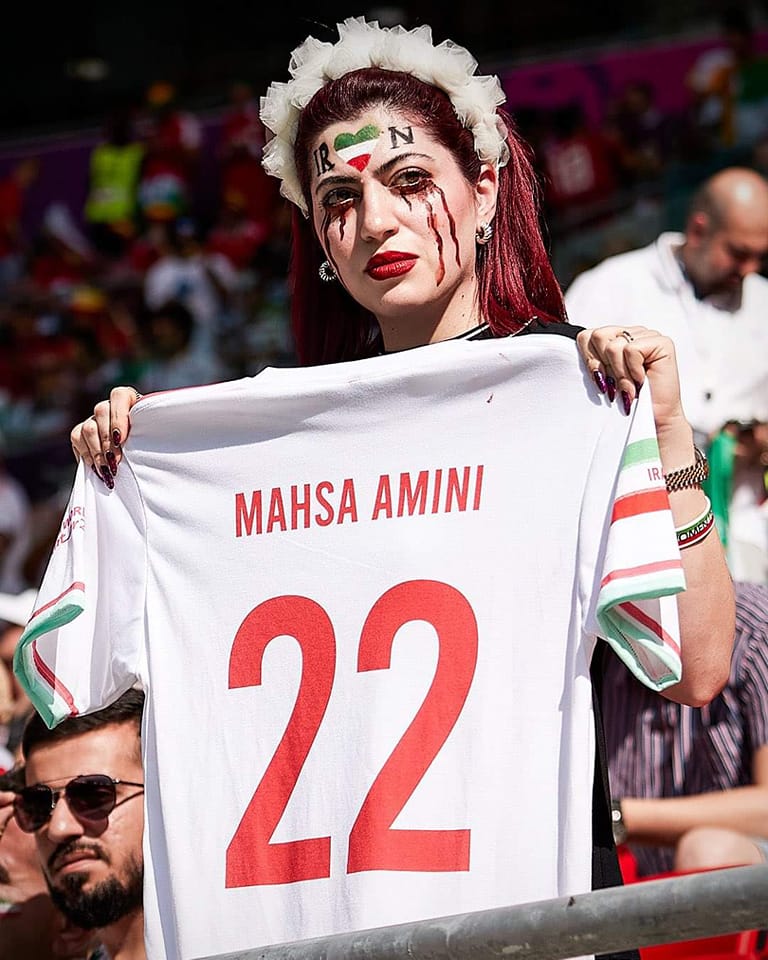
Opinions published in The Markaz Review reflect the perspective of their authors and do not necessarily represent TMR.
Mireille Rebeiz
There is a great deal of noise surrounding the 2022 FIFA World Cup— and not without reason, for the games are taking place in Qatar, a small Gulf country justifiably criticized for its serious violations of human rights. Some 6,500 migrant workers have died since 2010, when Qatar was selected by FIFA as the host country. Most such migrant laborers come from South Asia, from countries such as Nepal, India, Sri Lanka, and Bangladesh. Some families still do not know what happened to their loved ones. Environmental activists have decried the energy cost needed to build stadiums in the middle of deserts. Qatar is also hostile to the LGBTQ community, and homosexuality is criminalized. Finally, days before the games were set to begin, Qatar announced that it would not allow beer in its stadiums.
There were rumors of corruption too. According to reports in The Guardian and from the Foundation for Defense of Democracies (FDD), Qatar allegedly bribed some African members of the FIFA Congress to win the hosting rights. Leaked documents revealed that, “Doha offered the soccer body $400 million. Qatar reportedly offered FIFA another $480 million three years later,” reported the FDD.
This is not the first time FIFA is accused of corruption. In 2015, the US Federal Bureau of Investigation indicted 14 FIFA officials for racketeering, conspiracy and corruption.

Over the last couple of weeks, every major news outlet in Europe and the US has published an anti-Qatar article, as if all the above is actually news. The decision to grant Qatar’s request to host the games was made back in 2010. The world knew of Qatar’s laws and yet moved ahead with the decision. FIFA has made similar shocking decisions in the past — for example, allowing Argentina to host the World Cup in 1978, when the country was under the brutal dictatorship of Jorge Rafael Videla, and allowing Russia to do the same in 2018. Clearly, human rights violations have not deterred the gatekeepers of international soccer, or the world at large, from moving forward and holding the games in countries accused of just such violations.
As for the environmental cost, it is the same concern every four years. It was expressed back in the 2010 FIFA World Cup in South Africa, and the leaders who are complaining about Qatar today are the same ones who just met in Sharm El Sheikh, Egypt, to discuss climate change at the COP27 conference.
Human rights violation should be exposed, and there is no doubt that Qatar should be held accountable. The crimes against migrant workers should be investigated, and their families should be provided relief and compensation. However, today’s critics are yesterday’s accomplices. It is all politics and business as usual. And while 6,500 migrant workers died building stadiums in Qatar, a total of 24,443 migrants, mostly from Africa, died or went missing at sea between 2014 and 2021, in attempts to cross the Mediterranean to Europe. Pope Francis has dubbed the Mediterranean sea “Europe’s largest cemetery.” In 2022, 3,134 migrants died in North America. These deaths occurred as they were making their way to the US and Canada.
Western hypocrisy is astonishing.
Furthermore, the anti-Qatar rhetoric is taking away from the beauty of the sport and its ability to bring people together — people of different religions, ethnicities, skin color, languages, and sex (not so much gender in this case).
Historically, soccer has brought people together in politically charged environments. In 1986, Argentina played England in Mexico. Four years earlier, in 1982, the United Kingdom and Argentina had gone to war following the latter’s invasion of the Falklands Islands. At the World Cup, Argentina won 2-1, with the legendary Diego Maradona scoring twice. In 1998, the US faced Iran in France. The relationship between the two countries had been hostile since what has come to be called the Islamic Revolution toppled the Iranian monarchy in 1979 and transformed the country into an Islamic republic. Iran’s leaders have repeatedly spouted anti-American rhetoric and branded US foreign policy the source of all evil in the Middle East. The US has frequently accused the Iranian regime of terrorism. Many were apprehensive about the game; there was speculation that violence would erupt, and the anti-riot police was readied. However, the Iranian players walked onto the pitch and handed a bouquet of flowers to the American players, and then both teams posed for a picture.
Iran won 2-1 and eliminated the US from the games. Many Iranians saw in this match proof of their superiority and political righteousness. This interpretation aside, the game allowed for a rare friendly meeting between representatives of the two normally estranged countries.
The US and Iran will meet again in Qatar on Tuesday, November 29, 2022, and it will be interesting. Iran has been in turmoil since September. Protests erupted after the death of Mahsa Amini, a young Kurdish woman of 22. She was arrested by the morality police for improperly wearing the hijab. She was severely beaten, and she died in custody.
The news of Amini’s death spread like wildfire and sparked outrage across Iran. Many women took to the streets, burning their veils and chanting “woman, life, freedom.” More recently, and in a bolder move, protesters set fire to the house of the late Ayatollah Khomeinei, founder of the Islamic Republic. The defiance against the Islamic regime has not died down despite police brutality and threat of the death penalty looming over demonstrators. Meanwhile, the Iranian authorities have accused the US and Israel of supporting rioters and exporting immoral values to Iran to overthrow the regime and destabilize the country.
On Monday, November 21, Iran played its first game and lost to England 6-2. The Iranian team, who some considered beholden to the regime in Tehran, refused to sing the national anthem. Some interpreted this move as a protest against the regime, as the anthem glorifies Khomeini and the Islamic Revolution. The team’s manager, Carlos Queiroz, refused to comment on the team’s silence and would only answer questions related to soccer.
Iran’s instability comes at a time when the nuclear deal is still on the table. In July 2015, a Joint Comprehensive Plan of Action was reached between Iran and several other nations, including the US. Iran agreed to keep its nuclear program peaceful and to open its facilities to international inspections in exchange for sanctions relief.
Initially, Iran complied with the agreement’s terms. However, former US President Donald Trump pulled out of the agreement in 2018 and reinstated the sanctions. His administration claimed that the agreement did not address Iran’s funding of terrorism in the region. Today, the nuclear deal is back on the table with unclear indications as to whether its signatories will renew it. The US vs. Iran match will come at a time of high political tension, with much at stake, and all eyes should be on it.
It is most important to expose human rights violations. However, these exposures have become political red cards that are raised high against some, but not all, and not equally. Many in the West are quick to condemn Qatar and call to boycott the games even as their countries are equally responsible for the deaths of migrants. And amid the din, the anti-Qatar rhetoric has become so loud that it is drowning out the sweet sound of another potentially friendly game between two hostile nations.

